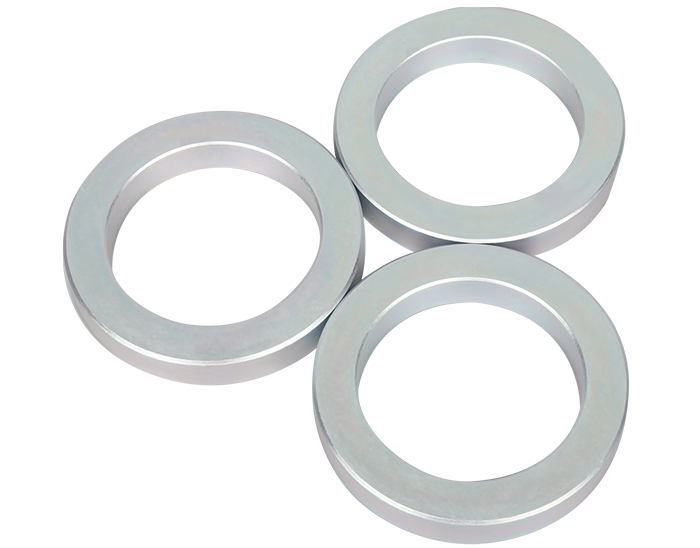Introduction:In the world of magnetism, ferrite magnetic tiles hold a prominent position. These distinctive tiles are renowned for their exceptional magnetic properties and versatile applications. This article aims to explore the origins, features, and benefits of ferrite magnetic tiles, emphasizing their significance in enhancing magnetic power and providing flexible solutions.
Origins and Characteristics:Ferrite magnetic tiles, often referred to as ceramic magnets, are a type of permanent magnet made from iron oxide (FeO) and barium or strontium carbonate. These materials are combined and then fired at high temperatures to create a crystalline structure, resulting in the formation of magnetically charged particles.
One of the defining characteristics of ferrite magnetic tiles is their high coercivity. Coercivity refers to the ability of a material to withstand demagnetization. Ferrite magnets have a high resistance to demagnetization, making them ideal for various applications where a magnet's magnetic field strength needs to remain stable over time.
Another notable characteristic of ferrite magnetic tiles is their strong resistance to corrosion. Unlike other types of magnets, such as neodymium magnets, ferrite magnets are not susceptible to oxidation and can withstand exposure to moisture and a range of environmental conditions. This corrosion resistance contributes to the longevity and reliability of ferrite magnetic tiles, making them suitable for both indoor and outdoor applications.
Features and Benefits:Ferrite magnetic tiles possess several features that make them highly sought after in a wide range of industries.
First and foremost, ferrite magnetic tiles have excellent magnetic strength. Despite their relatively lower magnetic force compared to rare-earth magnets, ferrite magnets provide a strong magnetic field for their size and weight. This magnetic power allows for efficient attraction and repulsion forces, making ferrite magnetic tiles ideal for applications such as magnetic separators, magnetic clamps, and magnetic stirrers.
Additionally, ferrite magnetic tiles are versatile in their applications. They have the ability to be custom-made into various shapes and sizes, providing flexibility in design and usage. Ferrite magnets can be easily cut, drilled, or machined into desired forms without affecting their magnetic properties. This versatility makes ferrite magnetic tiles suitable for an array of applications in industries such as electronics, automotive, aerospace, and medicine.
Moreover, ferrite magnetic tiles have excellent thermal stability. They can withstand high operating temperatures without significant loss in magnetic strength, unlike some other types of magnets. This thermal resistance allows ferrite magnetic tiles to be used in applications such as magnetic sensors, magnetic motors, and magnetic couplings where high temperatures are encountered.
Applications:The versatility and magnetic power of ferrite magnetic tiles make them indispensable in various industries and applications.
In the automotive industry, ferrite magnetic tiles are used in sensors, actuators, and motors, contributing to the efficiency and performance of vehicles. The tiles are also utilized in power steering systems, fuel injection systems, and anti-lock braking systems.
In the electronics industry, ferrite magnetic tiles are employed in speakers, buzzers, and transformers. Their robust magnetic properties enable efficient sound generation and energy conversion.
Ferrite magnetic tiles also find applications in the medical field. They are used in magnetic resonance imaging (MRI) machines, magnetic therapy devices, and magnetic drug delivery systems. The precise and controlled magnetic fields generated by ferrite magnets contribute to accurate diagnostics and effective medical treatments.
Conclusion:
Ferrite magnetic tiles hold a prominent position in the realm of magnetism, offering exceptional magnetic power and flexibility. Their origins in the combination and firing of iron oxide and barium or strontium carbonate result in a magnetic material with high coercivity and corrosion resistance. The features and benefits of ferrite magnetic tiles, including their magnetic strength, versatility, and thermal stability, make them indispensable in various industries and applications. As technology and innovation progress, ferrite magnetic tiles will continue to play a significant role in enhancing magnetic power and providing flexible solutions for many industries.



